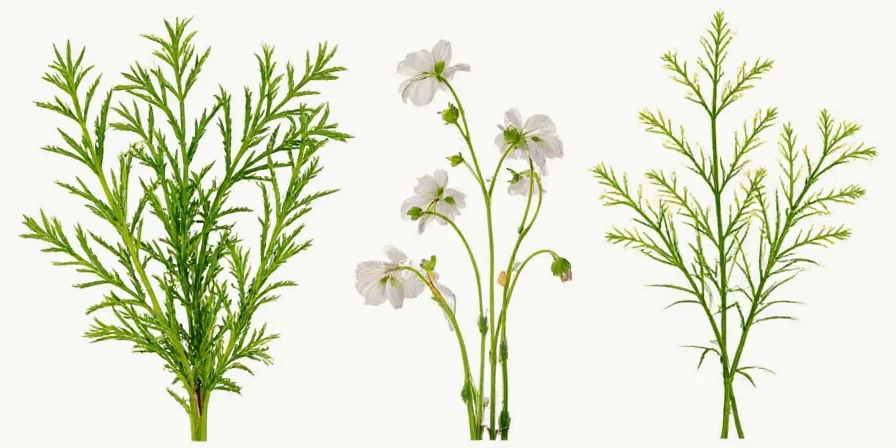
Start with these 10 essential herbs: basil, thyme, rosemary, cilantro, parsley, mint, dill, oregano, sage, and chives. Use fresh basil with tomatoes, thyme in stocks, rosemary with roasted meats, cilantro in Mexican/Asian dishes, flat-leaf parsley as garnish, mint in desserts, dill with fish, oregano in Italian dishes, sage with poultry, and chives as finishing touch. Store most herbs in damp paper towels in airtight containers for maximum freshness.
Practical Guide to Essential Cooking Herbs
Discover exactly which herbs matter most for home cooking and how to use them properly. This guide cuts through confusing culinary advice to deliver only what you need: the 10 essential herbs every kitchen requires, simple usage rules, storage solutions that actually work, and substitution options when you're missing an ingredient. No food science jargon—just clear, actionable guidance tested by professional chefs.
Top 10 Essential Herbs for Home Cooks
These herbs cover 95% of cooking needs. Keep dried versions of oregano, thyme, and rosemary in your pantry, and fresh versions of the others for best results:
- Basil: Essential for Italian dishes, especially with tomatoes. Tear (don't cut) leaves to prevent bruising. Best added at the end of cooking.
- Thyme: Works in almost everything—stocks, roasts, stews. Leaves stay flavorful even when cooked long. Remove stems before serving.
- Rosemary: Perfect with roasted meats (especially lamb) and potatoes. Use sparingly—it's potent. Strip leaves from woody stems.
- Cilantro: Must-have for Mexican, Asian, and Indian cooking. Adds bright freshness to salsas and curries. Stems are edible and flavorful.
- Parsley (flat-leaf): The ultimate garnish that actually improves dishes. Use in tabbouleh, gremolata, and as finishing touch for soups.
- Mint: Ideal for Middle Eastern dishes, fruit salads, and desserts. Pairs surprisingly well with peas and lamb.
- Dill: Essential for salmon, pickles, and tzatziki. Works best fresh—dried dill loses most flavor.
- Oregano: The backbone of Italian and Greek cooking. Use dried in tomato sauces (releases flavor better when dried).
- Sage: Best with poultry, squash, and butter sauces. Fry leaves until crisp for maximum flavor.
- Chives: Delicate onion flavor for eggs, potatoes, and finishing dishes. Always add raw at the end.
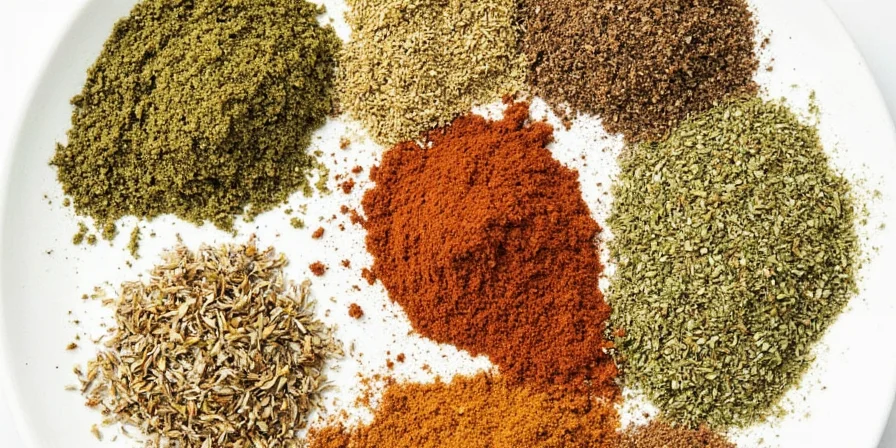
Proven Storage Methods That Extend Freshness
Most herbs last 2-3 times longer with these techniques:
- Hardy herbs (rosemary, thyme, oregano): Trim stems, place in glass with 1" water, cover loosely with plastic bag. Refrigerate.
- Tender herbs (basil, cilantro, parsley): Wrap in slightly damp paper towel, store in airtight container. No water!
- Basil special care: Never refrigerate—keep at room temperature like flowers. Changes color when cold.
- Freezing trick: Chop herbs, mix with olive oil, freeze in ice cube trays. Use directly in cooking.
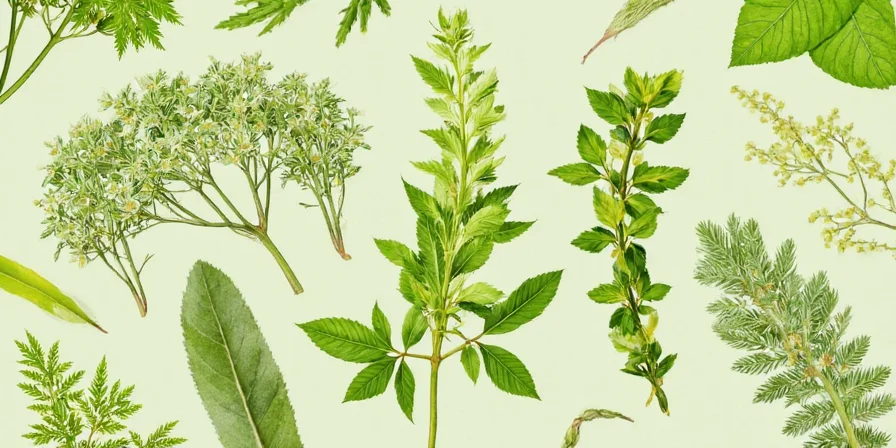
Herb Substitution Guide
| If You Need | Best Substitute | When to Avoid Substitution |
|---|---|---|
| Basil | Oregano + parsley (2:1 ratio) | In pesto (unique flavor profile) |
| Cilantro | Parsley + pinch of cumin | In guacamole (changes character) |
| Dill | Tarragon (use 50% less) | In pickling (fermentation requires real dill) |
| Rosemary | Thyme + sage (1:1 ratio) | With lamb (rosemary is essential pairing) |
| Tarragon | Chervil + basil (equal parts) | In béarnaise sauce (no good substitute) |
When to Use Fresh vs. Dried Herbs
- Always use fresh: Basil, cilantro, dill, chives, mint, parsley
- Always use dried: Oregano, thyme, rosemary (drying concentrates flavor)
- Depends on dish: Sage (fresh for delicate dishes, dried for long-cooking)
Common Mistakes to Avoid
- Adding delicate herbs too early: Basil, cilantro, and dill lose flavor with prolonged cooking—add in last 2 minutes.
- Using dried instead of fresh in raw dishes: Dried herbs are too intense for salads, salsas, or garnishes.
- Storing herbs like flowers: Only hardy herbs (rosemary/thyme) get water—most herbs rot with moisture.
- Cutting instead of tearing: Damages cells, causing faster browning (especially basil).
- Ignoring stem potential: Parsley and cilantro stems add great flavor to stocks—freeze for later use.
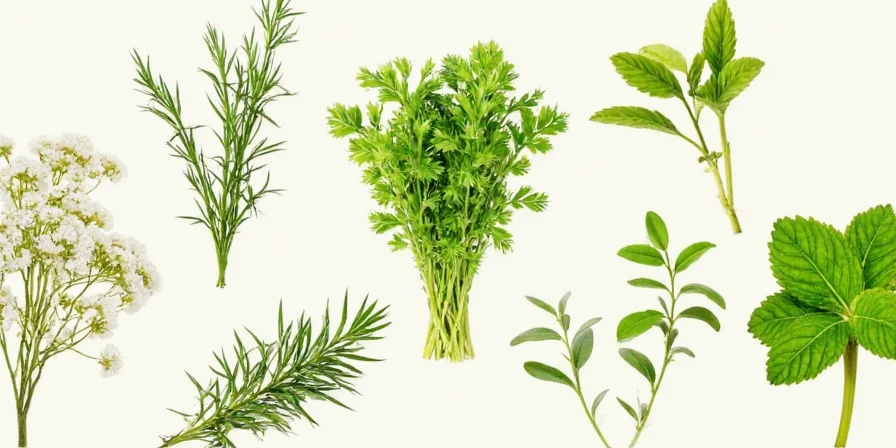
Quick Reference: Top Pairings
- Tomatoes: Basil, oregano
- Chicken: Thyme, sage, rosemary
- Fish: Dill, tarragon, chives
- Eggs: Chives, parsley, dill
- Potatoes: Rosemary, dill, chives
- Beans/Legumes: Thyme, rosemary, sage
- Desserts: Mint, basil, lavender
FAQ: Essential Herb Questions Answered
Which 5 herbs should I keep if I can only have a few?
Basil, thyme, parsley, oregano, and chives. This combination covers Italian, Mediterranean, and general cooking needs. Keep dried oregano and thyme in your pantry, and fresh parsley and basil for versatility. Chives add finishing touch to almost everything.
How can I make herbs last longer in the refrigerator?
Hardy herbs (rosemary, thyme): Trim stems, place in glass with 1 inch water, cover loosely with plastic bag. Tender herbs (basil, cilantro, parsley): Wrap in slightly damp paper towel, store in airtight container. Basil lasts longest at room temperature like cut flowers. Most herbs stay fresh 10-14 days with these methods.
Can I substitute dried herbs for fresh in recipes?
Yes, but only for certain herbs and with proper conversion. Use 1 teaspoon dried for every 1 tablespoon fresh (1:3 ratio) for oregano, thyme, and rosemary in cooked dishes. Never substitute dried for fresh in raw applications like salads or garnishes—dried herbs are too intense and have different flavor profiles.
Why does my basil turn black so quickly?
Basil bruises easily when cut (use tearing instead) and turns dark when cold. Never refrigerate fresh basil—store at room temperature in water like flowers. If refrigeration is necessary, wrap loosely in paper towel first. For longer storage, blend with olive oil and freeze in ice cube trays.
What's the easiest way to preserve excess herbs?
Chop herbs, mix with olive oil (3 parts oil to 1 part herbs), freeze in ice cube trays. Once frozen, transfer cubes to airtight bag. Use directly in cooking—no thawing needed. Works especially well for basil, parsley, and cilantro. Drying works best for oregano, thyme, and rosemary.
Putting It All Together: Simple Herb Strategy
- Start with these 5 basics: Fresh basil, thyme, parsley, plus dried oregano and chives.
- Store properly: Keep hardy herbs in water, tender herbs wrapped in paper towels.
- Add at right time: Delicate herbs (basil, cilantro) in last 2 minutes; hardy herbs (rosemary, thyme) early.
- Use proper ratios: 1 tsp dried = 1 tbsp fresh (for cooked dishes only).
- Freeze excess: Oil-infused herb cubes work better than plain freezing.
This practical approach ensures you always have the right herbs for 95% of cooking situations without overwhelming complexity. Focus on proper storage and timing—these make more difference than obscure herb varieties. Master these basics before exploring more specialized herbs like tarragon or marjoram.

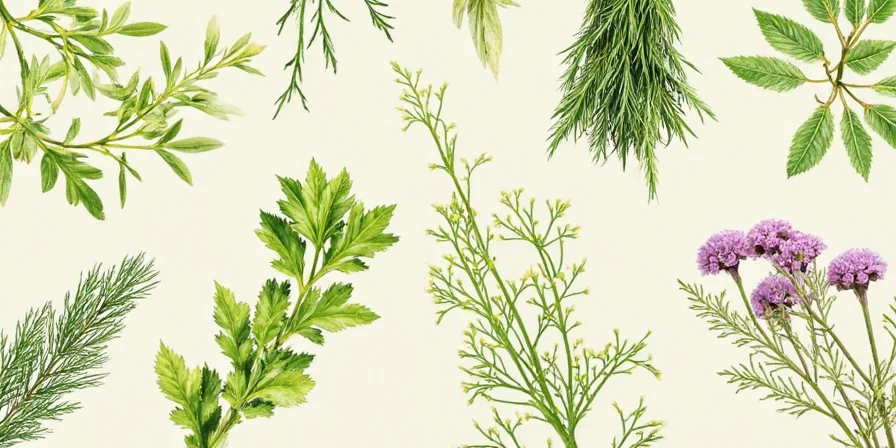









 浙公网安备
33010002000092号
浙公网安备
33010002000092号 浙B2-20120091-4
浙B2-20120091-4